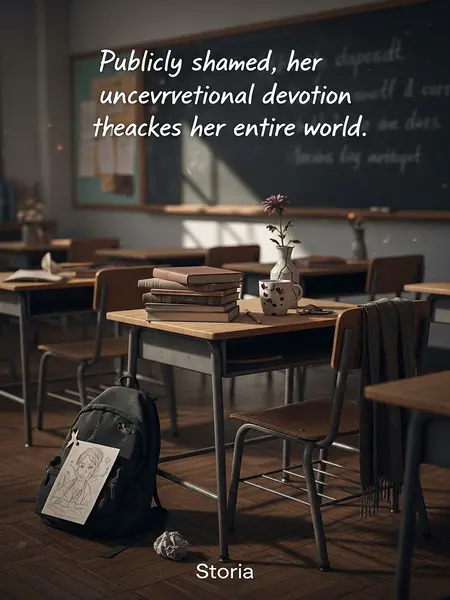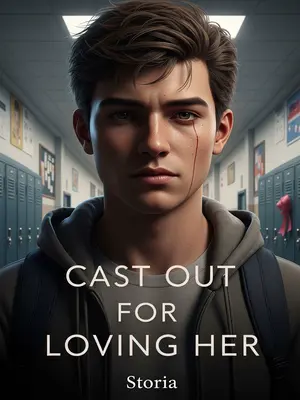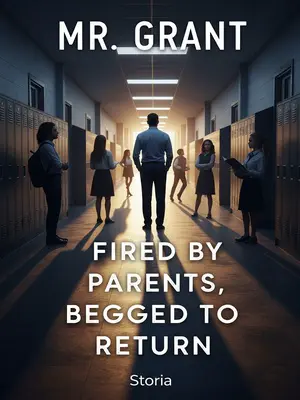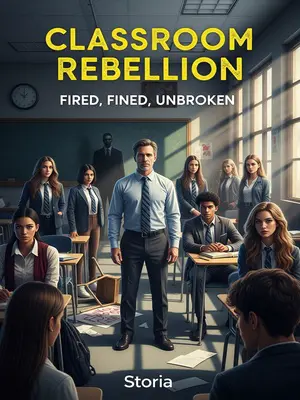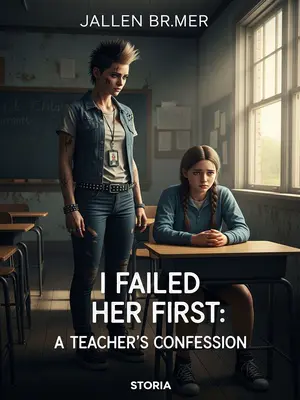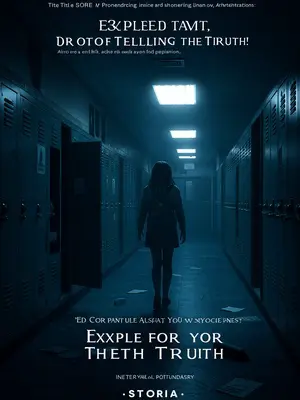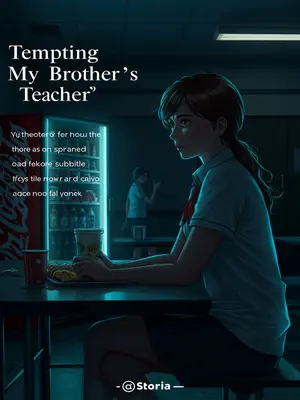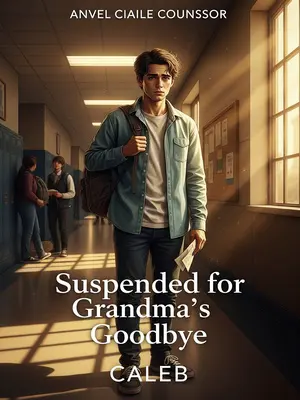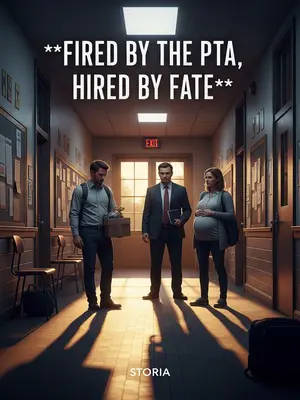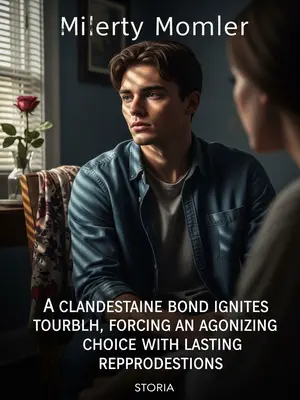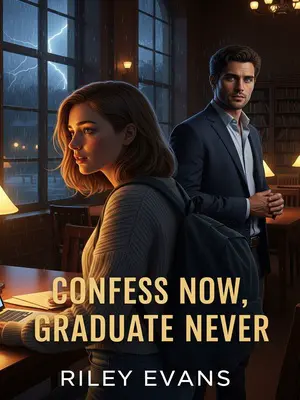Chapter 6: Decisions and Goodbyes
The homeroom teacher said coldly, "You did poorly. You should feel ashamed, not glad. Wait—"
She paused mid-sentence, frowning as if the puzzle pieces didn't fit.
Only then did she realize something was off. She asked my mom, "Did he really only miss the top school by ten points?"
Ms. Parker turned to my mom, the first hint of real curiosity in her eyes.
My dad spoke up, "Ms. Parker, that's my fault. He lost those ten points in the PE exam. Like he said, we're just working-class folks—I'm a roofer. That day, I fell off a roof. The day before his PE exam, he had to carry me to see the doctor."
He cleared his throat, staring at the ground. The class fell silent, some students glancing at their own parents, thinking about what they might do for family.
The homeroom teacher asked, "Can you buy those ten points?"
She sounded almost hopeful, as if wishing for a simple fix.
"Ten points cost thousands. Our family couldn't afford it. My son couldn't bear it."
My dad's words landed heavy, the kind of truth that doesn't leave room for excuses. A hush fell over the room.
"Hmm..."
Ms. Parker looked down, lips pressed together. Her eyes darted away, as if seeing the gulf between our worlds for the first time.
The homeroom teacher fell silent.
She toyed with her pen, her composure shaken. I wondered if she saw me differently now—less a troublemaker, more a kid just trying to make it.
She paced back and forth at the front of the classroom, as if hesitating whether to let my mom continue.
The air was thick with anticipation. A few students exchanged glances, unsure of what would come next.
The whole class watched her, awkward and uncertain.
Even the usual class clowns sat silent, their attention glued to the drama unfolding up front.
Finally, the homeroom teacher said, "These are admirable qualities. So, since you have good character and a chance at the SATs, why choose early romance and risk your future?"
Her voice was gentler, almost caring. She seemed to struggle with her role—teacher, disciplinarian, and, maybe, someone who understood more than she let on.
My mom quickly replied, "My child is already eighteen. He was held back a year to take care of me."
She said this with pride, her eyes shining. For a moment, she sounded defiant—her son's sacrifices meant something.
The homeroom teacher said firmly, "Even if he's eighteen, he's still in school. Continue reading."
She tried to regain her authority, but her voice trembled just a bit. She folded her arms again, but her mask was slipping.
My mom had no choice but to continue: "These past years have been the happiest of my life. Every day in class, I look forward to seeing you, always watching you."
My mom's voice cracked. I could tell she wanted to stop, but Ms. Parker gave her a small, encouraging nod. The class leaned in, not daring to breathe.
The homeroom teacher said sternly, "In class, you should be looking at the teacher, at the board. Your eyes should be on me."
She tried to inject some humor, but her voice was thick. Some students grinned, but the moment was heavy.
I nodded.
I couldn't help it—she was always the center of my universe. My eyes had never left her, even when I pretended not to care.
My gaze had always been on her.
I looked down at my hands, clenched so tight they ached. Even now, I couldn't look away from her for long.
My mom read: "I once thought about telling you how I feel, but I always hesitated, until that day you came to my house and sat on my bed. You wore beautiful designer clothes, so out of place in my shabby home. That scene hurt me deeply."
Her voice was barely a whisper, shame and pride fighting for control. I remembered that day in vivid detail—the awkwardness, the longing, the way everything seemed to freeze.
In an instant, the homeroom teacher flew into a rage.
She slammed the letter onto my desk, her cheeks flushed. The room went silent.
She raised the letter and slammed it toward me. "The girl even went to your house? Even sat on your bed?"
Her voice was loud, a mix of shock and something else I couldn't name. All eyes were on me, waiting for my answer.
I didn't dodge, looking straight at her.
I met her gaze, refusing to flinch. For once, I wanted her to see the truth.
That day, she came for a home visit.
She'd taken off her fancy coat at the door, her eyes darting around our cramped living room. She smiled at my mom and dad, but I could tell she felt out of place.
I still remember wanting to pour her a cup of tea, but we didn't even have a proper glass at home.
All I could offer her was a mug from last year’s county fair, the handle chipped, but I scrubbed it clean until it shined.
All I could do was open a box of Swiss Miss hot chocolate—something my mom's factory gave us for Thanksgiving—and make her a cup. We never opened gifts at home, saving them to give to relatives.
The cocoa was a luxury—something we usually saved for special occasions. I poured the powder into the mug, stirring carefully so it wouldn't clump.
It was a cold day. My parents had put the space heater in my room for the visit.
The little heater hummed and clicked, the only warmth in the drafty house. I watched my breath fog in the air, nervous she'd think less of us.
The homeroom teacher held the hot chocolate, sat on my bed, bit the straw, and took a sip.
She smiled, legs crossed at the ankles, making herself comfortable like it was any other home. But I could see her eyeing the peeling paint and the secondhand furniture.
Then she looked up, smiled sweetly, and said to me, "Ah, it's so warm."
Her words wrapped around me like a blanket. For a moment, I almost believed we belonged in the same world.
I sat beside her. After so many years, I was finally alone with her again.
We sat in silence, the kind that feels full of things unsaid. I memorized every detail—the way she tucked her hair behind her ear, the gentle curve of her smile.
Everyone else dreaded home visits, but I wished that day could last forever.
I wanted to freeze time, to keep her there, laughing with my mom and sharing stories about the past. It felt like magic.
I couldn't bear for her to leave.
As she packed up to go, I felt my chest tighten. I almost begged her to stay, but swallowed the words.
But I didn't want her to see too much of my poverty.
I made sure she never saw the broken window in the kitchen, or the pile of bills on the counter. I hoped she'd remember the hot chocolate instead.
My mom, reading my letter, was already sobbing: "When you sat in my home, I really wanted to tell you, I've searched for you for so many years, chased after you for so long."
Her tears fell freely now, streaking her cheeks. The class looked uncomfortable, unsure where to look.
"I love you like the wind that travels a thousand miles, like clouds drifting across endless skies, day after day, year after year. That little boy who once picked up cans to help his family has truly fallen for a girl far beyond his reach. I was once so full of hope, thinking I could change my fate."
I squeezed my eyes shut, ashamed but unwilling to deny any of it. The words were true—they always had been.
"But when you wore that fancy scarf you see in magazines, dressed like a beautiful doll, sitting in my shabby home, I realized you were just a painting that doesn't belong in my life."
The words felt like a goodbye. My mom's hands shook as she clutched the letter, her shoulders shaking with each sob.
Her knees buckled, and she slid down the wall, the letter crumpling in her fist as she sobbed.
My dad rushed to her side, supporting her as she sat on the floor, sobbing. I wanted to run to her, but my feet were rooted to the spot.
She wiped her tears and cried out to me, "Why did you write this? You're a good kid—it's always been us dragging you down. Your father and I are the useless ones; you've always been such a good kid!"
Her words broke me. I shook my head, unable to speak, my own tears burning behind my eyes.
The homeroom teacher panicked, hurrying to help my mom up, anxiously saying, "Ma'am, please, don't do this."
She knelt beside my mom, voice trembling, as she helped her to her feet. The class watched in stunned silence, the gravity of the moment dawning on everyone.
"How is my son not good enough for anyone..." My mom sobbed hoarsely. "He helped with chores from a young age, took care of me when I was bedridden. I gave him five dollars a day for breakfast and the bus, but he just took a roll and an English book, leaving for school at five in the morning."
Her voice was raw, the truth of our life laid bare for everyone to see. I caught the eye of a classmate, who looked away quickly, ashamed for ever judging me.
"My son is the best kid in the world. It's always been us who are useless. Why did he write such things? How is he not good enough for others?"
Her sobs echoed in the quiet classroom. My father hugged her tightly, whispering, "It's not your fault. He's a good kid."
My dad lowered his head, silent.
He looked older than I'd ever seen him. I wanted to comfort him, but I didn't know how.
The love letter scattered on the floor.
Sheets fluttered like fallen leaves. No one dared to pick them up. I stared at the jagged handwriting, each word a piece of my heart.
The homeroom teacher held my mom, unsure what to do for a moment.
She bit her lip, looking at me, then at my parents. The authority in her posture was gone, replaced by uncertainty and empathy.
She said softly, "I never thought it would turn out like this. Let's stop reading. None of us need to read anymore."
Her voice was gentle, as if she was talking to a friend instead of a parent. She reached for the box of tissues on her desk, handing them to my mom.
She took out a tissue and gently wiped my mom's tears.
She knelt beside her, dabbing at her cheeks. A few students finally relaxed, some whispering apologies for their earlier laughter.
Then she turned to the class, her voice anxious: "Class, these thoughts are off track, but I want to make this clear: never look down on yourself just because you're poor when you're young. You're still in your youth—never let low self-esteem take root."
She looked around the room, her words heavy with meaning. Some students nodded, others bit their lips. The lesson felt more real than anything in the textbooks.
A student couldn't help but say, "I've been to his house. It's really poor. If the girl wears Chanel, their families aren't even in the same league, right?"
A hush fell, the blunt honesty hanging in the air. The student looked embarrassed, but also curious—genuine, if tactless.
The homeroom teacher grew anxious and quickly said, "For the first thirty years of life, you look at the father and son; after thirty, you look at the son and father. This love letter is wrong. You haven't even begun to realize your value. Life has endless possibilities—don't measure your worth by your parents' status."
She spoke with conviction, a flicker of hope in her eyes. Maybe she saw her own story in ours, or maybe she just wanted us to believe in something more.
I stood up and walked to the front of the classroom.
My legs trembled, but I stood tall, refusing to hide any longer. I felt everyone's eyes on me—some filled with sympathy, some with understanding.
I picked up the love letter, looking at her flustered face.
She met my gaze, and for a second, I saw something like regret. The letter felt heavier than before, every word a scar I wore openly.
In her agitation, my mom accidentally pulled out her hair tie.
Her hair tumbled down around her face, softening her features. She looked so different—vulnerable, beautiful in a way I'd almost forgotten.
As her long hair fell, the evening sunlight lit up her face.
The last rays of sun streamed through the window, casting a golden halo around her. I swallowed hard, caught in the memory.
